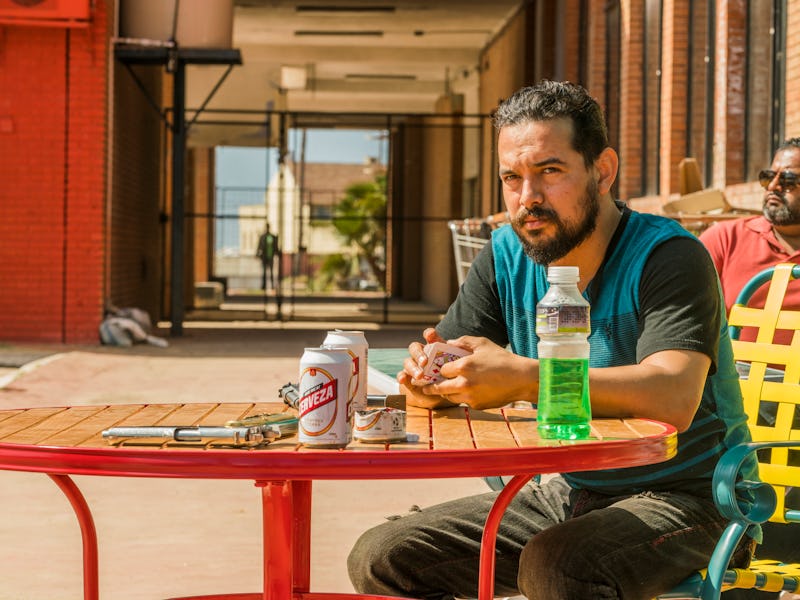'Fear the Walking Dead' Explores A Cartel Supermarket
"Sacrifice" shows the mundane made terrifying.

When the apocalypse begins, the smartest thing you can do (besides raid Modell’s for combat boots) is monopolize essentials. Food, water, and shelter are in short supply. If you want easy living in the end of days, providing what people need is a golden ticket. Unfortunately, you’re going to compete with drug lords who already have the muscle and arsenal to take them first.
Fear the Walking Dead continues to one-up its older sibling series The Walking Dead by detailing a world where logic and plausibility are the most dominant forces in the zombie apocalypse. In “Sacrifice,” Nick (Frank Dillane) is assigned to accompany Luciana (Danay Garcia) on a dangerous task: Grocery shopping.
The little Tijuana village that Nick has found himself is low on fresh water and food, but the cartels have taken over the supermarkets in the east. The build-up towards the moment is predictably tense and full of expected, if cliched, details. The cartels guard the perimeter with stale beer, poker games, and rifles on their backs. The entrance fee is medicine, a necessary sacrifice for what’s inside. The rules are simple: You can take everything so long as it fits in one cart. Last time, Luciana was afforded two carts. But the rules have changed, because they can.
When the doors open, the horrifying world outside calms to the dimly-lit errands inside. This is Sunday shopping when the world is over, packing jugs of water and pocketing cookies in the hope men with guns don’t catch you. (In the case of Nick, they certainly do.) It is no less mundane than it is unsettling.
When the dead rise, no one’s first thought is to wrap a bat in barbed wire or make a crossbow an accessory. Everyone just wants to survive. No one in Fear the Walking Dead is a cosplay mannequin, and the show follows that logic by presenting a plausible world than “apocalypse Westeros.” Of course the cartels would stop trafficking drugs — there’s one throwaway line from Luciana that they still do, though less often — but instead deal in actual medicine, food, and shelter. A village’s worth of people hole up inside the supermarket’s makeshift infirmary overseen by the cartel’s head. It’s not yet known what these cartels gain out of amassing power when money and drugs mean nothing, but man’s survival instincts are often a strange thing. If zombies compel cartels to become community leaders and providers, maybe there’s more to fear than the dead.